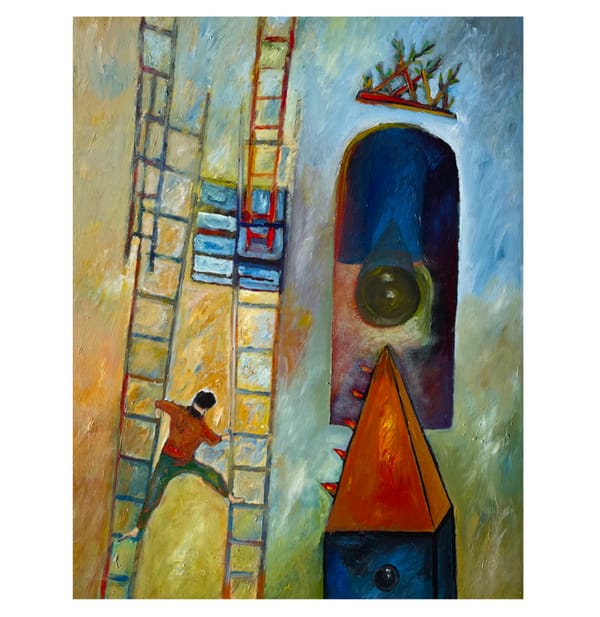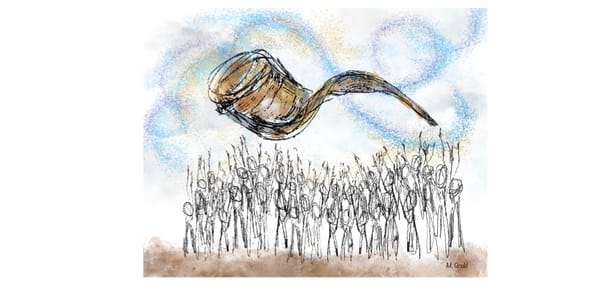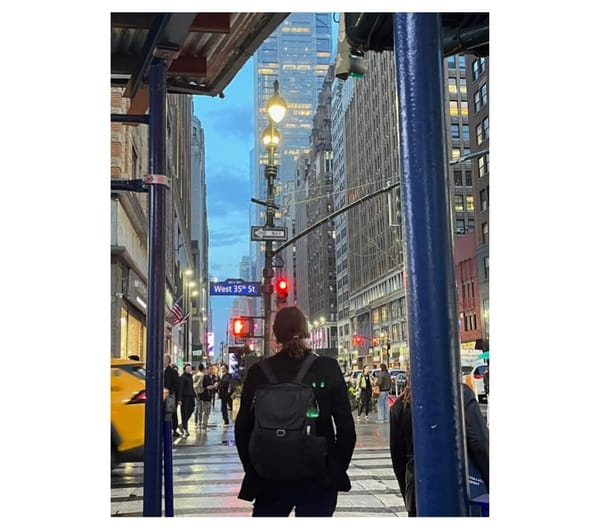Three Summers in Israel, and When Everything Changed by Rabbi Harry L. Rosenfeld
Nothing prepared me for going to “Hostage Square” in the courtyard of the Tel Aviv Museum of Art. There, exhibits recreating Hamas tunnels, graves of those murdered on October 7, actual family members sitting in tents telling the stories...

The past three summers, I had the privilege to spend three weeks taking classes at the Shalom Hartman Institute in Jerusalem, visiting old friends and making new ones. I expect each trip to Israel will be different. Yet, the differences over these past three years have been different from each other, and different from each of the dozen or more times I visited Israel in the past.
The summer of 2022 was a summer of peace. Conversations with friends and colleagues centered around the possibility that peace with Saudi Arabia and other Arab countries was on the horizon. My highlight that summer was watching a former student of mine from Buffalo march in the opening ceremony of the Maccabia games as a part of the American national rugby team. President Joe Biden was in attendance.
The summer of 2023 was a summer of protest against changes the Netanyahu government wanted to make which would limit the basic rights of all Israeli citizens. Each Motzei Shabbat, Saturday evening, I went to rallies in Jerusalem where thousands of protesters joined tens of thousands of protesters across the entirety of Israel, marching to preserve a judicial system that protected civil rights for all Israelis. The power of ordinary citizens effectively halted the government’s plans.
By this summer, 2024, all had changed. Israel reeled, and still reels, from the terrorist attacks of October 7, 2023. Friends worried for their own safety and the safety of their children and grandchildren. Everyone had a personal connection to at least one hostage held by Hamas or Islamic Jihad, or murdered on October 7. I again joined the Saturday evening protests, but these protests were different. Now, Israelis across the political spectrum joined together to demand the government prioritize saving the hostages and find a way to yet another ceasefire with Hamas. I stood in front of the offices of the Chief Rabbinate in Jerusalem as the name of each person still held captive was read through a megaphone and the people shouted, “Bring them home!” In Tel Aviv, I stood with a lifelong friend who joined the tens of thousands of protesters echoing the same cries from Jerusalem.
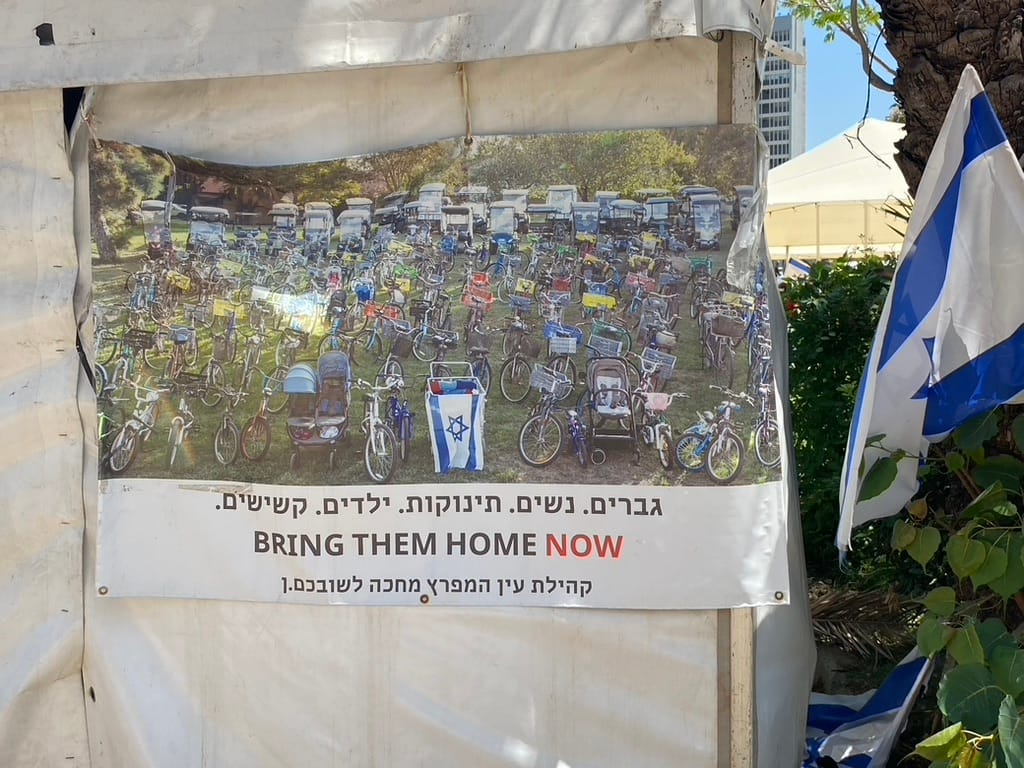
Israelis and others like me, volunteered throughout the country to fill needs created by, at that time, nine months of war. I joined friends in the Galilee replacing foreign workers who had left Israel for their home countries. We spent hours picking nectarines for processing so they would not rot on the trees. I, along with some of my Hartman classmates, packed nearly a thousand food boxes for Jewish, Muslim, Christian, and Druze families whose primary wage earners were off serving as army reservists.
But, for the most part this summer, as I walked the streets of Jerusalem, Haifa, and Tel Aviv, life was almost normal. Businesses were open, albeit with fewer customers. Traffic was as crazy as ever. Kids walked to and from school every day. And yet, around the country warning sirens would announce rocket and drone attacks, safe rooms were restocked and reinforced, and people were applying for dual passports from countries their families had fled from before and after the Shoah. The only oddity for me driving from the Galilee after picking nectarines to Haifa to visit friends, was I could not use Waze, a GPS app invented in Israel, as the Israeli military scrambled the GPS network in the northern and southern parts of Israel, and Waze thought I was driving near the Beirut, Lebanon airport. If I had been in the southern part of the country, it would have thought I was in Cairo.
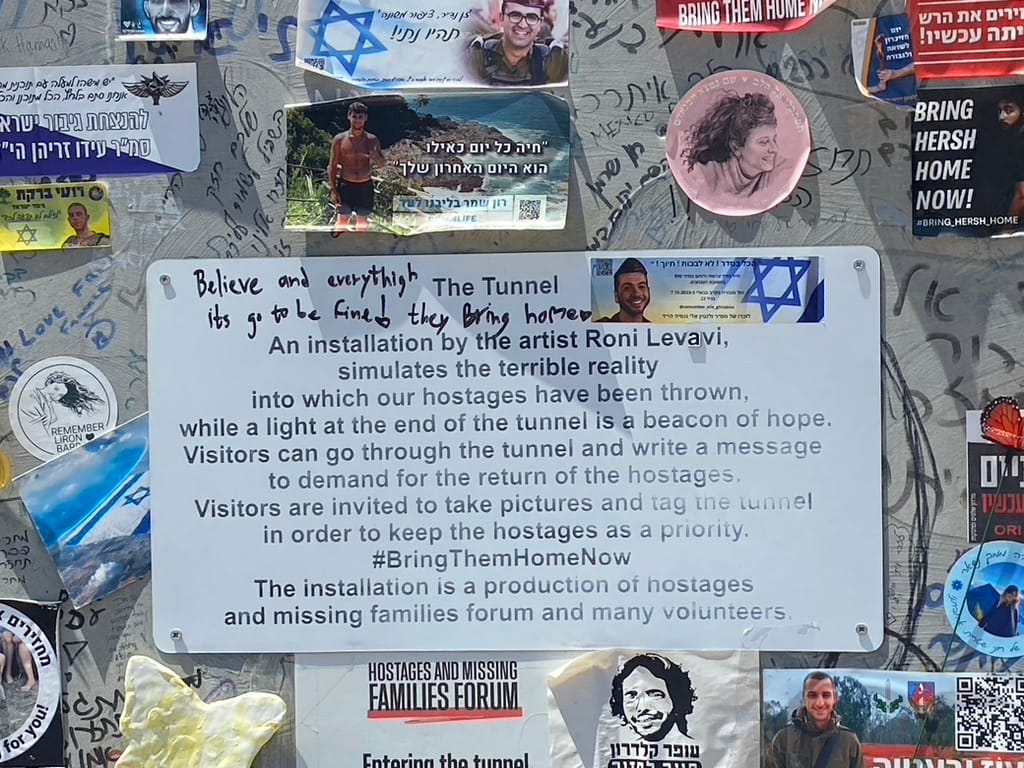
Nothing prepared me for going to “Hostage Square” in the courtyard of the Tel Aviv Museum of Art. There, exhibits recreating Hamas tunnels, graves of those murdered on October 7, actual family members sitting in tents telling the stories of their loved ones held hostage to this day, and a piano, where a passerby sat down and started playing a mournful tune. My heart was rent into hundreds of pieces, for each of the hostages. I felt helpless. All I could do was to buy tee shirts, signs, and yellow ribbons, the proceeds of which go to support the families left behind.
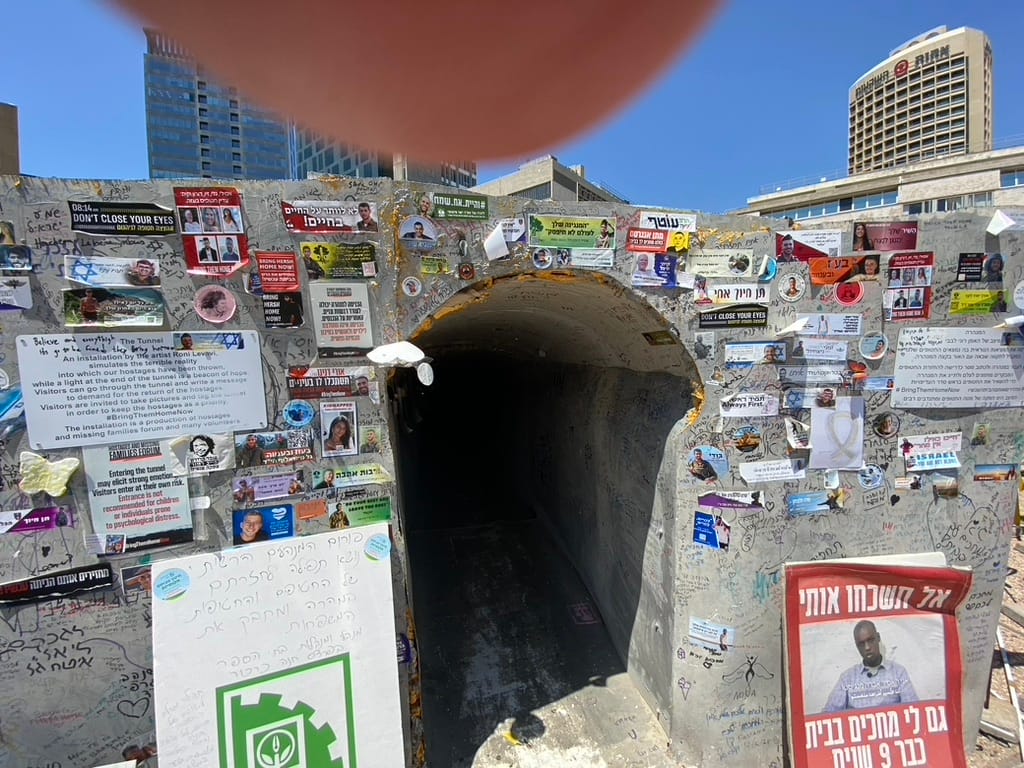
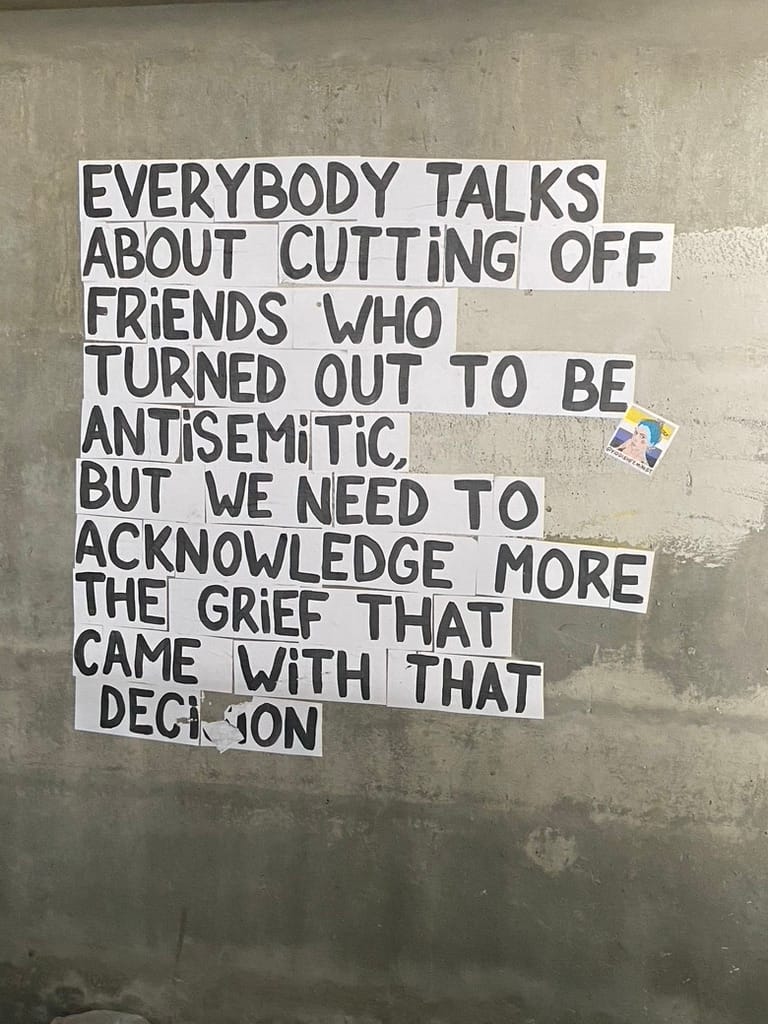
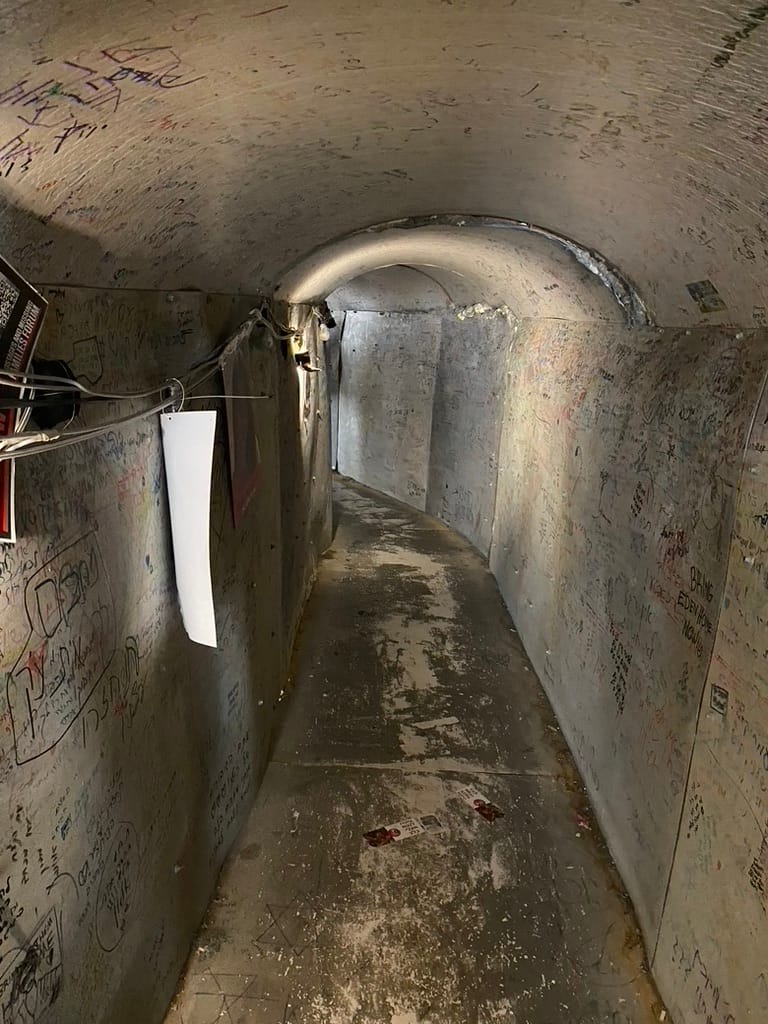
Entering the installation The Tunnel, by artist Roni Levavi, at “Hostage Square” in the courtyard of the Tel Aviv Museum of Art. photos courtesy Rabbi Harry Rosenfeld. all rights reserved.
In the States, we wear blue ribbons to show support for the hostages. In Israel they wear yellow ribbons. If you attend the Sunday walks at the JCC, you may have seen Rabbi Celia Surget wearing one of the tee shirts I gave her.
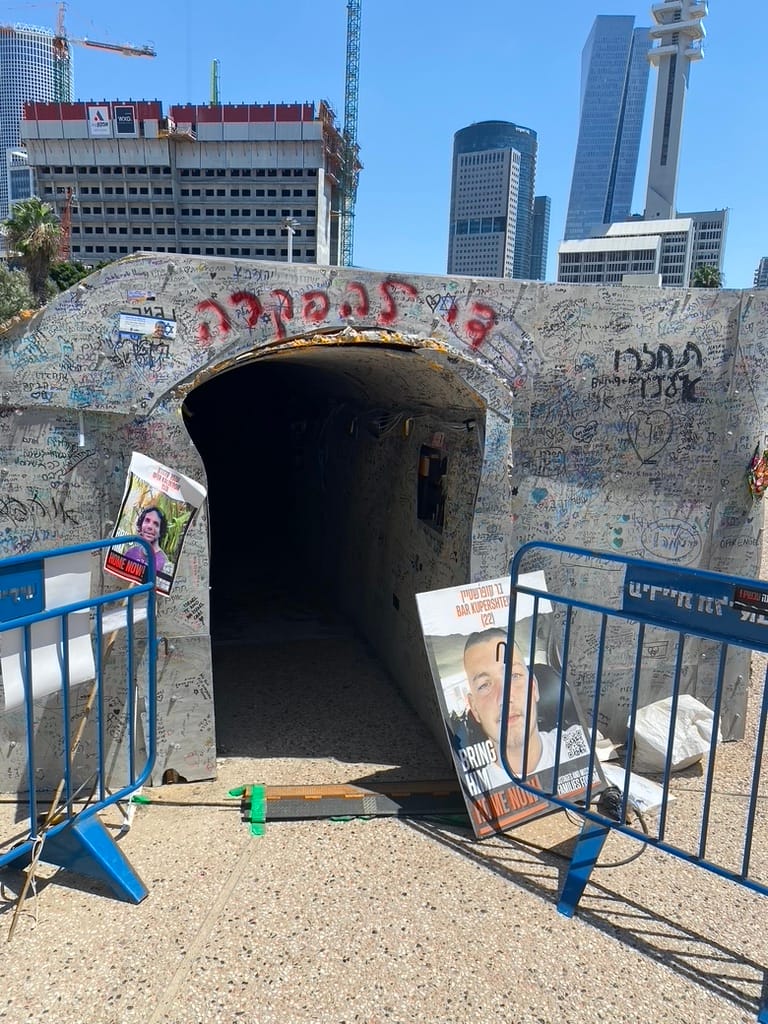
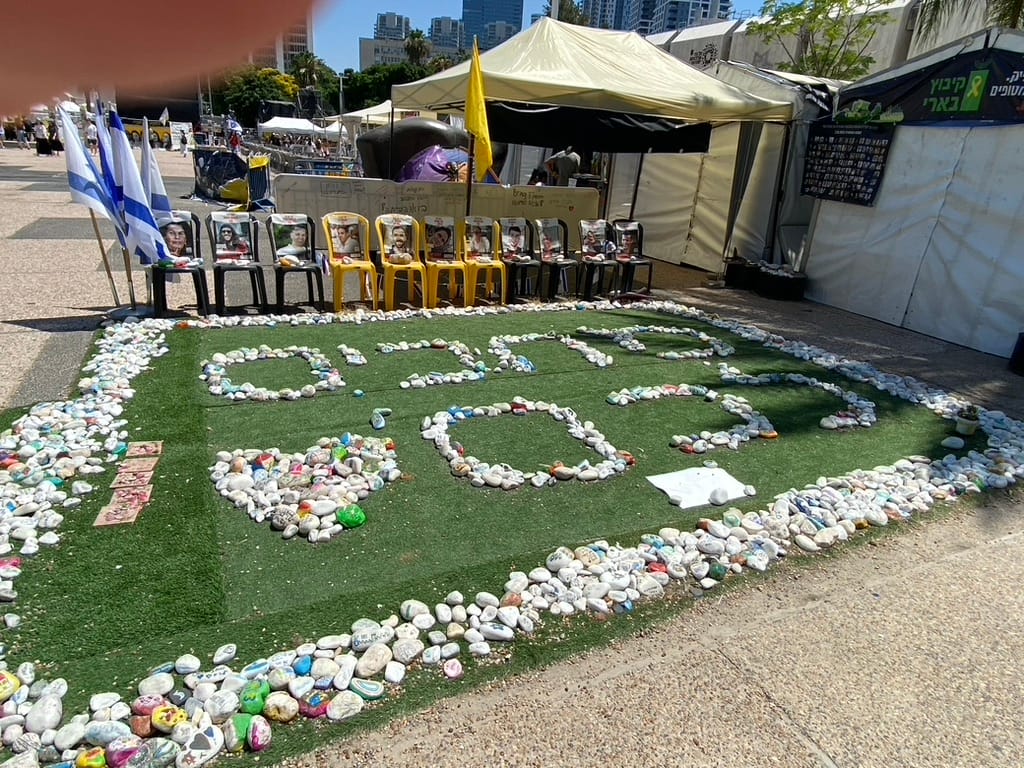
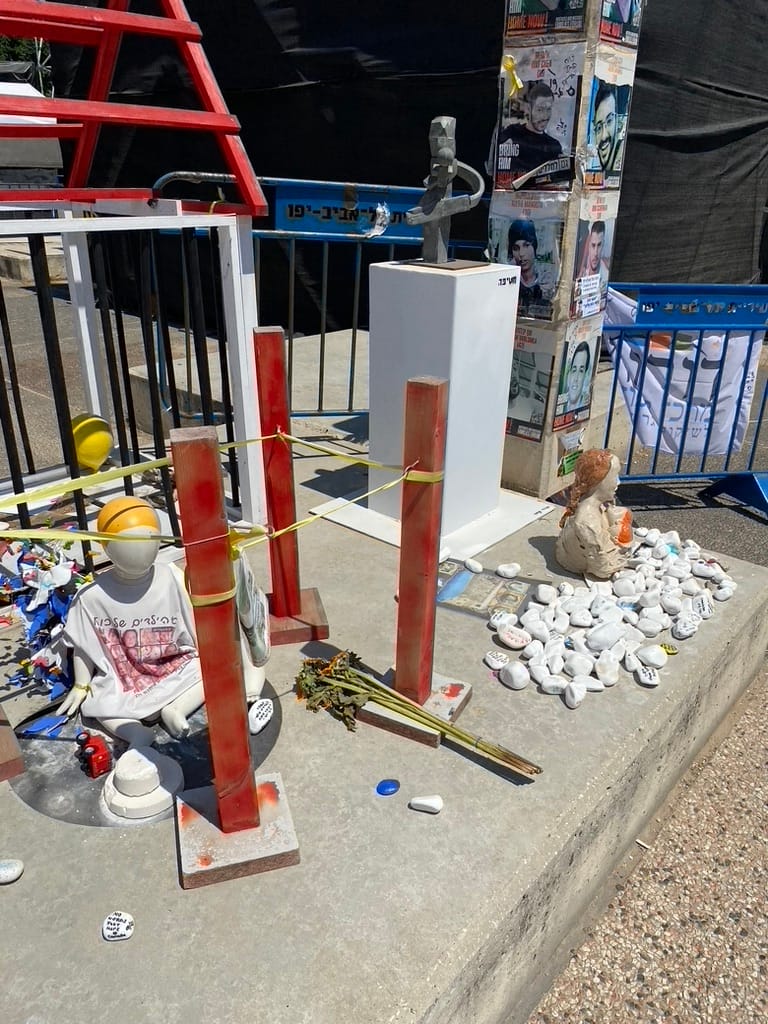
At “Hostage Square” in the courtyard of the Tel Aviv Museum of Art. "Actual family members sitting in tents telling the stories of their loved ones held hostage to this day." photos courtesy Rabbi Harry Rosenfeld. all rights reserved.
Since I’ve been home, Iran and Israel have traded attacks. Israel continues the war in Gaza and launched operations against Hezbollah. Antisemitic attacks around the world continue to increase in frequency and destructiveness, and here in America, we face the uncertainty of how a new Presidential administration and Congress will approach the Middle East.
Yet, as we Jews know, we need to continue to hope. I recently participated in the Brit Milah (circumcision ceremony) for my best friend’s newest grandson. The parents named their child Matan Rafael, which means “a gift from God” and “God heals.” It takes hope to bring new life into this world of ours. It takes hope to believe that healing can come to our world. I believe it will.
Rabbi Harry L. Rosenfeld is Rabbi Emeritus, Congregation Albert, Albuquerque
Return to HOME or Table of Contents
Community Supporters of the NM Jewish Journal include:
Jewish Community Foundation of New Mexico
Congregation Albert
Jewish Community Center of Greater Albuquerque
The Institute for Tolerance Studies
Jewish Federation of El Paso and Las Cruces
Temple Beth Shalom
Congregation B'nai Israel
Shabbat with Friends: Recapturing Together the Joy of Shabbat
Single Event Announcement:
Save our Jewish Cemetery
New Mexico Jewish Historical Society
Policy Statement Acceptance of advertisements does not constitute an endorsement of the advertisers’ products, services or opinions. Likewise, while an advertiser or community supporter's ad may indicate their support for the publication's mission, that does not constitute their endorsement of the publication's content.
Copyright © 2024-2025 New Mexico Jewish Journal LLC. All rights reserved.
